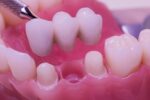Let’s all keep our assumptions at the door before we begin; poor breath affects even the best of us. Bad breath, also known as halitosis, happens more often than many of us would like, whether it’s related to nutrition, your morning routine, or dental hygiene.
Why do people have persistent bad breath? Bad breath is mainly caused by mouth, throat, or esophagus issues. Luckily, the 21st Century has multiple, expert-approved strategies to help you maintain fresh breath.
Outlined in detail below are the several strategies that can help you prevent bad breath, saving you from worry or embarrassment when meeting with friends and family.
How Does Food Affect Breath?
Your breath is often affected by the foods you eat. Certain foods, including garlic and onions, contain sulfur compounds that are taken into the bloodstream and subsequently expelled through the lungs, creating bad breath. Sugary meals also help because they foster the development of oral microorganisms.
Overall, one’s diet has a significant impact on not just the quality of one’s breath, but your general health as well.
Why Do Poor Habits Cause Bad Breath?
Lack of oral hygiene practices might give additional time to bacteria growth that produces foul breath odors. If you don’t brush and floss regularly, these bacteria can grow on the remnants of food you eat, producing toxic byproducts. Additionally, smoking and binge drinking may reduce the production of saliva, which typically aids in mouth cleaning and acid neutralization. Because of the decrease in saliva production, skipping meals can also cause bad breath.
These bad routines foster the growth of germs, which in turn contributes to the permanence of bad breath. Good oral hygiene is essential for avoiding these negative outcomes. If you need any assistance with this, contact a dental clinic in Sidney.
So, How Do You Keep Your Breath Fresh?
-
Practice Excellent Oral Hygiene
Brush your teeth twice a day for two to three minutes to eliminate plaque and food particles. Remember to brush your teeth before bed and during breakfast. Acidity and bad breath-causing bacteria can be reduced by brushing with baking soda.
Food between teeth can’t be reached by a toothbrush, but flossing can. Without food debris removal, germs will feed on it, causing bad breath. Above all, you can also get a deep dental cleaning near you by a professional to maintain oral hygiene.
-
Stay Hydrated
Dehydration inhibits saliva production, which is bad because saliva contains antibacterial and antifungal characteristics that keep your mouth healthy and your breath fresh. Saliva also breaks down food, washes it away, and lubricates your teeth to prevent food from getting lodged.
If food isn’t broken down or washed out, bacteria can grow in your mouth. More food left means more bacteria feasting.
-
Snack On Apples Or Any Other Crunchy, Healthy Foods
Eat carrots, celery sticks, and apples between meals to boost saliva and wipe away bacteria. Hunger or fasting can produce bad breath. These snacks can help. When you skip meals, stomach acids build up and cause bad breath.
-
Scrape Your Tongue
Avoid neglecting tongue cleaning since bacteria can build up on its rough surface and cause halitosis. To remove buildup between taste buds and tongue folds, wipe the entire surface, not just the tip. A cheap plastic tongue scraper from a drugstore works well for this. The tongue can be cleaned with the toothbrush too.
-
Limit Alcohol and Tobacco Use
Damage to the oral flora by alcohol is certainly not ideal. This causes dry mouth and bad breath. If your breath is bad in the morning after drinking, reducing your alcohol intake can help your microbiota!
-
Manage Gastrointestinal Issues
Stay hydrated, consume a balanced diet, and avoid hot and acidic foods to prevent gastrointestinal bad breath. Eat smaller, more frequent meals, and take medicine for acid reflux.
Need Assistance? You Can Come to Us Anytime!
If you’re tried multiple solutions to address your foul breath but it persists, it’s time to see a dentist near you. Some medical conditions, such as diabetes, gastrointestinal disorders, or respiratory problems, can cause persistent foul breath and may necessitate specialized treatment.
Keep in mind that the prevention of bad breath and the promotion of general oral health can be greatly aided by practicing proper dental hygiene and making healthy lifestyle choices. Worry no more. Sidney Harbour Dental is at your service from this second!









